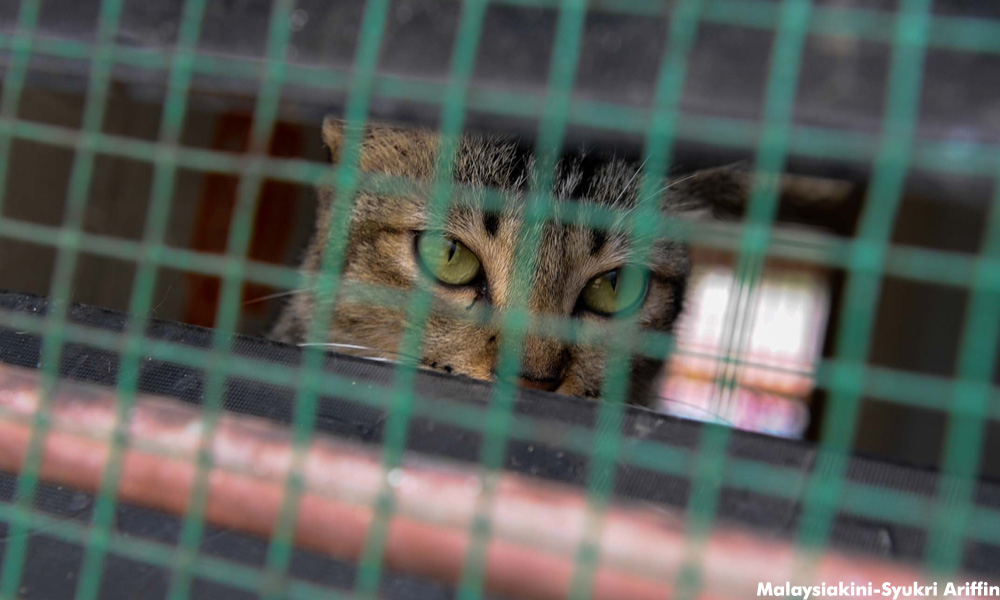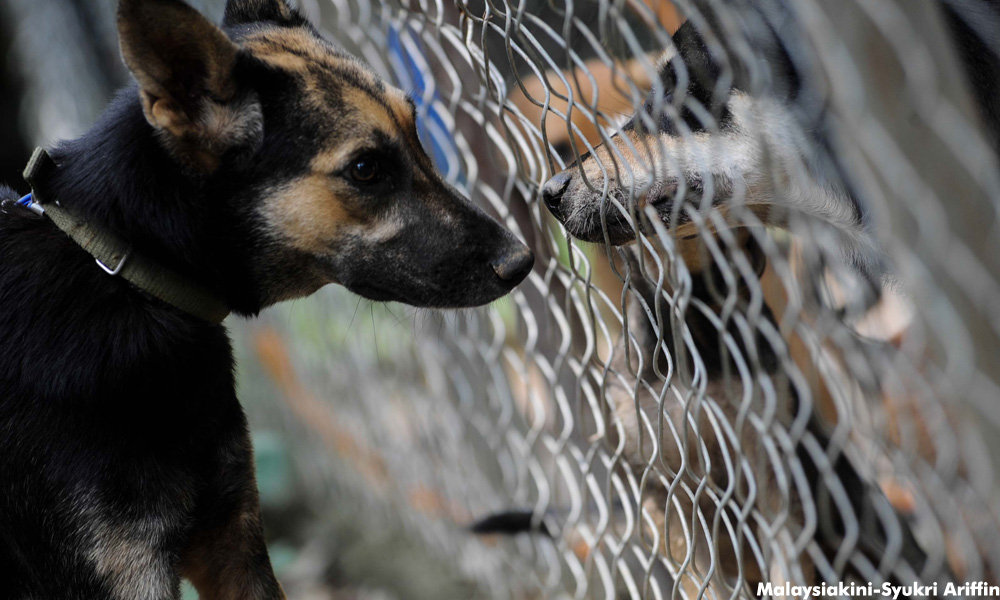Despite the steep penalty, including a jail term, for animal abuse under the Animal Welfare Act 2015, such cases remain prevalent with some people ill-treating animals in full view of the public.
It is not just pets and stray animals like dogs and cats that are at the receiving end of the abusers but also wildlife. On June 27, for instance, several wild monkeys were found dead in Paya Terubong, Penang, purportedly due to poisoning.
Department of Veterinary Services (DVS) Enforcement Division director Zaharinan Abd Aziz said as of September this year, his department received 276 complaints pertaining to 13 categories of animal cruelty and neglect.
“During the same period, we also carried out 5,597 operations involving the inspection of pet shops and animal breeding centres, boarding places and shelters, and also investigated 39 cases.
“Among the categories of abuse reported were pets not being given food and water, abandoned after the owners moved elsewhere, kept in filthy cages, and tied to a short leash and exposed to the sun and rain,” he said at a recent webinar on Animal Welfare: What is the Level of Awareness among Malaysians? organised by the Malaysian Veterinary Medical Association.
The 39 cases investigated by the department this year comprised 30 animal abuse cases and two poisoning cases as well as seven cases involving the sport of cockfighting and fish fighting. These cases involved 28 dogs, nine cats, 116 roosters and 27 fighting fish.
Eight of these cases have already been settled in court with action taken against the perpetrators under the Animal Welfare Act 2015, he added.
Zaharinan said kicking, beating, abusing or mutilating an animal, whether a pet or stray, is counted as a wilfully committed offence. The same goes for the act of not providing food and water as well as poisoning animals.
He said the Animal Welfare Act has specific sections dealing with these offences, namely Section 29 pertaining to animal cruelty, Section 30 (killing of animals), Section 31 (administration of poisons) and Section 31 (animal fighting ventures).
“Any person convicted (of an offence under the Act) can be fined not less than RM20,000, with the maximum fine being RM100,000, or face a maximum three years’ imprisonment, or both,” he said.
Meanwhile, DVS Regulatory Division director Dr Muhammad Razli Abdul Razak said animal abuse is still widespread in this country due to the low level of awareness of animal welfare among the public.
“Although animal activists, animal lovers’ associations and veterinarians are making an effort to safeguard the welfare of animals, it is not enough. The public must also cooperate by being more compassionate to animals,” he said.
Universiti Putra Malaysia veterinary officer Dr Syamira Syazuana Zaini said an overseas study carried out by the International Journal of Environmental Research and Public Health in April this year showed that animal cruelty is linked to the issue of domestic violence.
“In the United Kingdom, for instance, an animal abuse case would not stop at punishing the perpetrator. Upon investigating further, the authorities have found that most of the cases stem from domestic violence and public mental health issues,” she said.
Citing a study carried out by Kuala Lumpur DVS in 2019 covering Putrajaya residents, Syamira Syazuana said their awareness of animal welfare was found to be low due to factors such as lack of knowledge, perception, culture, economy and communication.
She said the public must understand the five basic needs that must be met to ensure the welfare of animals, namely providing them with an appropriate environment; protecting them from pain, suffering, injury and illnesses; placing them together or separately; allowing them to exhibit natural patterns of behaviour; and providing them with an appropriate diet.
“Awareness of animal welfare can be increased through a shift in people’s attitude towards animals, using the participatory approach with animals, empathetic communication and exposure to such awareness from a young age,” she added.
Veterinarian Dr Salehatul Khuzaimah Mohamad Ali, meanwhile, said pet owners must apply the five Cs – commitment, consideration, cost, control and care – to ensure the welfare of the animals in their care.
“Keeping an animal and taking care of them is a lifelong commitment and (the owner) should be prepared for any eventuality such as (change in) health status, moving to another place and environmental conditions to ensure their pet is able to adapt itself (to its new surroundings).
“Also, one should study the characteristics of the animal one intends to keep because their character and diet are not the same as humans.
“Make sure your dog or cat doesn’t roam around and disturb the neighbours because they may complain to the local authorities which are empowered to catch the animals concerned and destroy them,” she said, adding that cats and dogs should be neutered or spayed to control their population.
Salehatul Khuzaimah also urged the public to evaluate their financial capacity before deciding to keep a pet. This is to prevent them from abandoning their pets when they can no longer afford to feed and take care of them.
The Malaysian Animal Association had stated in April last year that the dumping of pets tripled in Kuala Lumpur following the implementation of the movement control order.
The association said this was based on feedback from its volunteers who feed stray cats and dogs at several locations in the city.
- Bernama






No comments:
Post a Comment
Note: Only a member of this blog may post a comment.